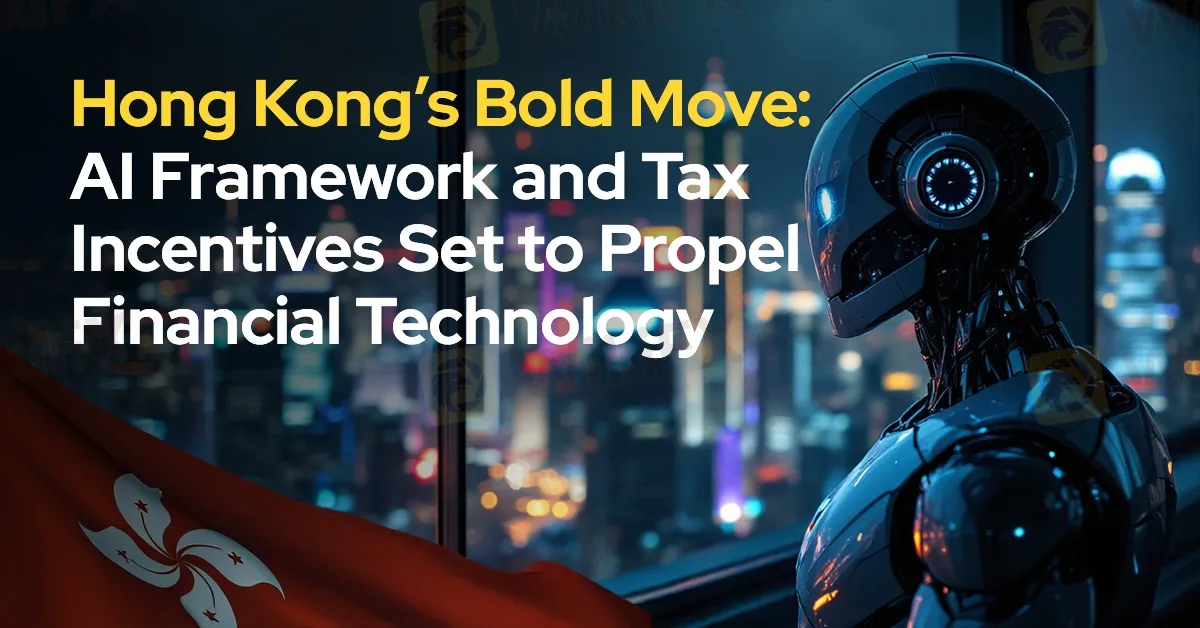简体中文
繁體中文
English
Pусский
日本語
ภาษาไทย
Tiếng Việt
Bahasa Indonesia
Español
हिन्दी
Filippiiniläinen
Français
Deutsch
Português
Türkçe
한국어
العربية
Hong Kong’s Bold Move: AI Framework & Tax Incentives Set to Boost Fintech Growth
Abstract:Hong Kong is strengthening its position as a fintech leader with the introduction of new policies that support artificial intelligence (AI) integration in the financial sector and explore tax breaks for virtual asset investments.

Hong Kong is strengthening its position as a fintech leader with the introduction of new policies that support artificial intelligence (AI) integration in the financial sector and explore tax breaks for virtual asset investments. The recently announced AI framework provides a structured approach for the citys regulatory bodies in banking, securities, pensions, insurance, and auditing, setting the groundwork for sector-specific guidelines that will encourage responsible and effective AI adoption.
Christopher Hui, Secretary for Financial Services and the Treasury, highlighted Hong Kong‘s potential for AI-driven innovation in finance, citing the city’s substantial markets and versatile financial applications. During his keynote speech at Hong Kong's annual Fintech Week, Hui noted that the new AI policy aims to position the financial sector as a model for AI usage, capitalizing on the citys readiness for advanced technology in finance.

The timing of Hong Kongs AI policy comes amidst a rapidly evolving global tech landscape, influenced by both accelerated digital progress and ongoing U.S.-China tech tensions. While local consumers currently face restrictions accessing major U.S. AI services, Hong Kong is proactively investing in its domestic AI capabilities. Notably, the Hong Kong University of Science and Technology plans to launch InvestLM, a language model designed specifically for Hong Kong's financial sector, supporting regulatory alignment and financial analysis needs within the local market.
In addition to its AI-focused initiatives, Hong Kong has proposed expanding its tax incentives to encompass virtual assets. Hui emphasized that extending these tax breaks, initially introduced for family offices and private funds, would allow the city to tap into the rapidly growing digital asset market. The legislation, which is expected to be finalized by the end of the year, would make Hong Kong more competitive in the regional digital finance landscape, positioning it as a rival to cities like Singapore in attracting virtual asset investments.
According to Hui, these policy measures reflect Hong Kong‘s vision of becoming a leading financial hub for AI and digital assets, further solidifying its role in asset allocation and innovation within Asia’s financial ecosystem. By combining forward-thinking AI policies with targeted tax incentives, Hong Kong aims to create a robust framework that supports the citys ambitions for technological and financial leadership.

Disclaimer:
The views in this article only represent the author's personal views, and do not constitute investment advice on this platform. This platform does not guarantee the accuracy, completeness and timeliness of the information in the article, and will not be liable for any loss caused by the use of or reliance on the information in the article.
Read more

Gold Prices to Fluctuate This Week Amid July 9 Tariff Deadline, Fed Policy
Gold prices are likely to fluctuate sharply this week as traders keep a close eye on the announcements regarding the US import tariff policy, US Federal Reserve’s take on interest rate cuts, etc. Know in detail the gold price forecast.

Oil Prices Stay Firm on Solid US Jobs Data
Oil prices stayed firm this week as the US labour department posted a better-than-expected payroll data in June 2025. Read this news in detail.

US Jobs Data Out: Boom in Government Sector, Not So in Private Sector
Jobs grew unexpectedly in June 2025 as per the data released from the US Labor Department. However, the government sector contributed more than half to the non-farm payroll. Read this to find out why private sector struggles to add jobs in the US.

FIBO Group MT5 Cent Account with Ultra-Leverage up to 1:5000 for Beginners
FIBO Group's MT5 Cent account offers a low-deposit Forex trading account with ultra-high leverage up to 1:500 for testing strategies on MetaTrader 5.
WikiFX Broker
Latest News
Forex Hedging: Is It a Trader’s Safety Net or Just an Illusion?
OPEC+ members agree larger-than-expected oil production hike in August
FCA clarifies expectations on bullying, harassment and violence to deepen trust in financial service
Asia-Pacific markets mixed after Trump shifts goalposts on tariffs again
XS.com Expands Global Reach with Landmark Kuwait Launch
European markets set to open mixed amid fresh U.S. tariff threats
Top Wall Street analysts are pounding the table on these 3 stocks
Stock futures fall after Trump team says tariffs will go into effect on Aug. 1: Live updates
Goldman Sachs revamps Fed interest rate cut forecast for 2025
Gold Prices to Fluctuate This Week Amid July 9 Tariff Deadline, Fed Policy
Currency Calculator


